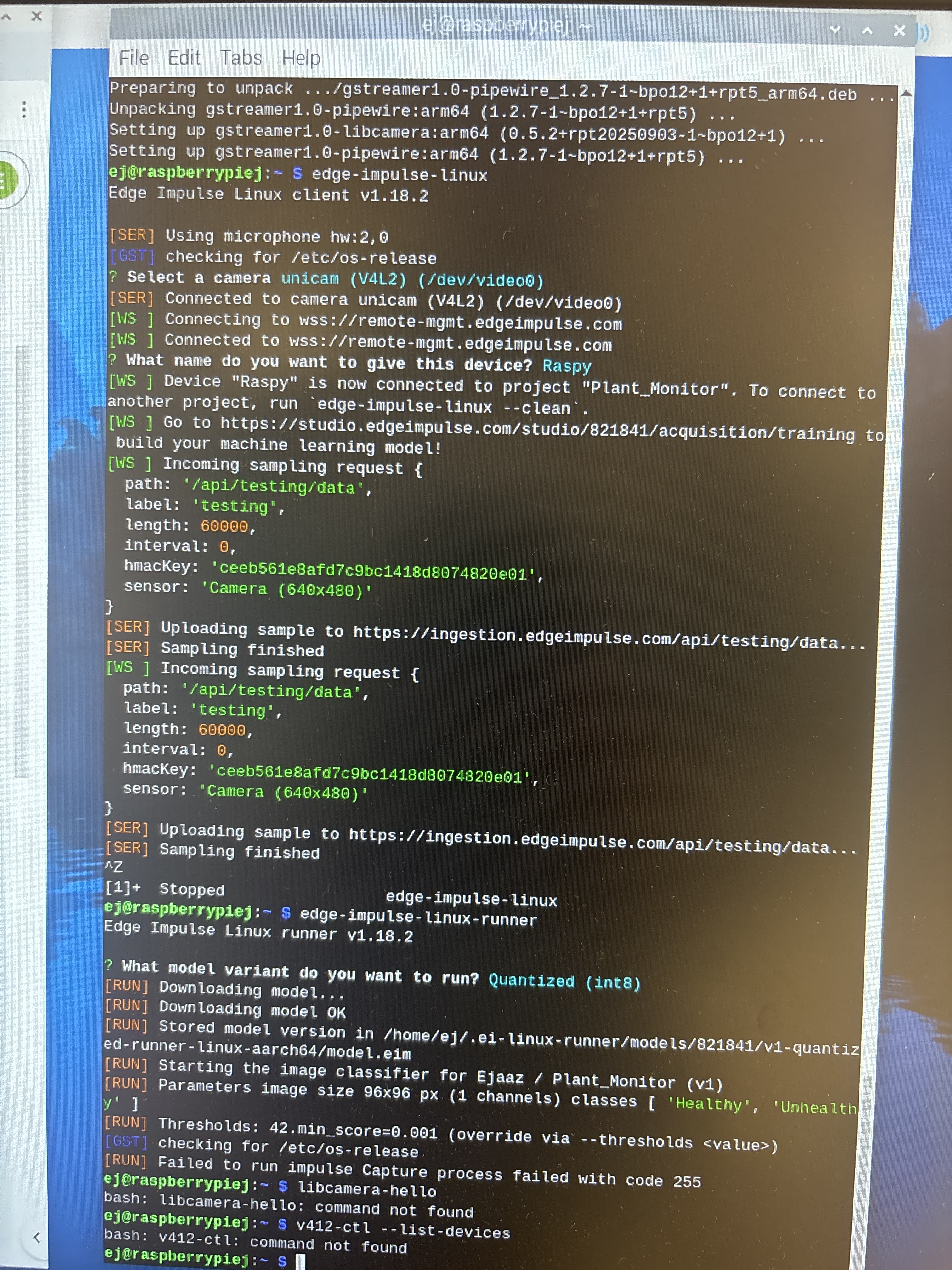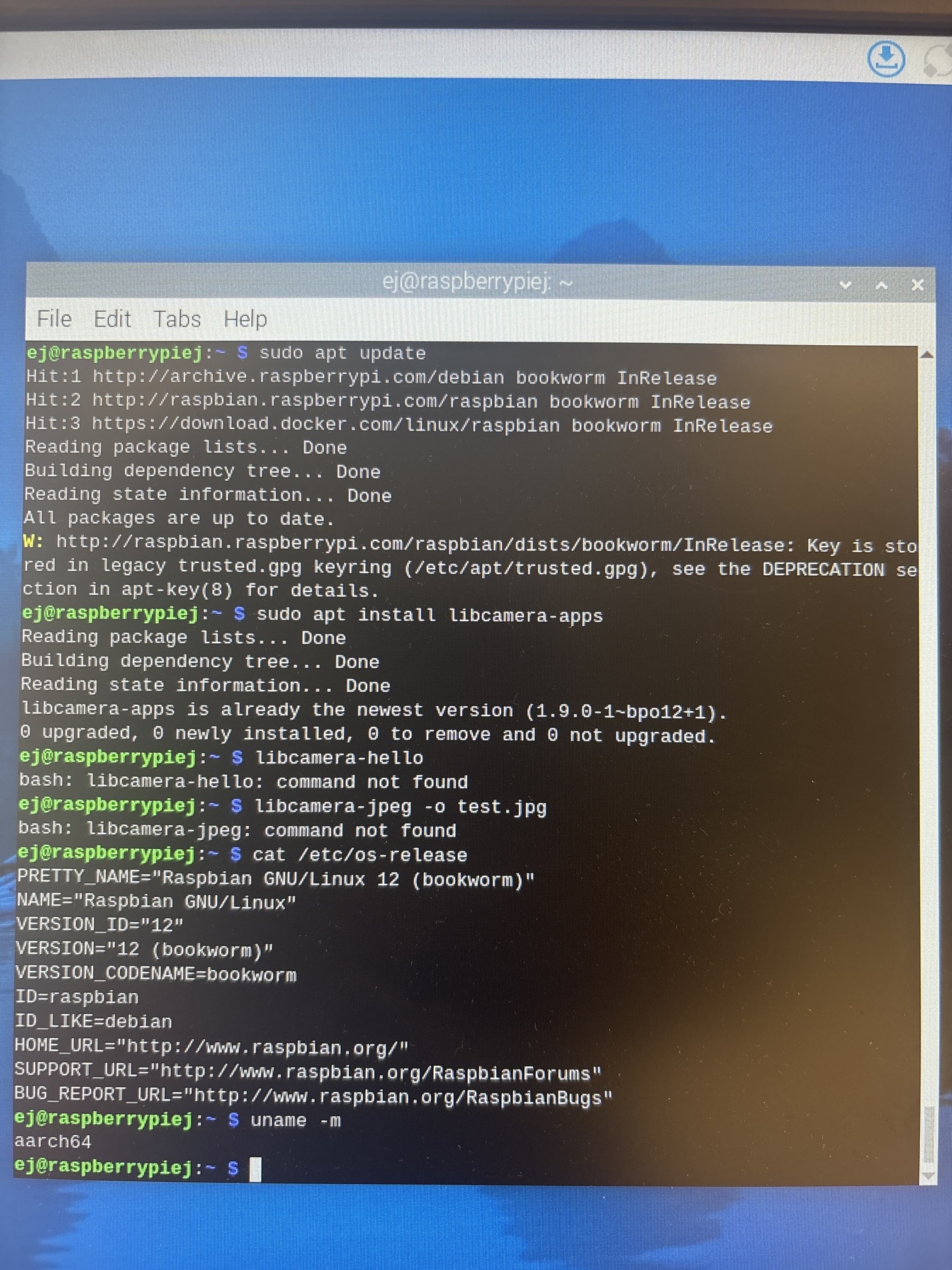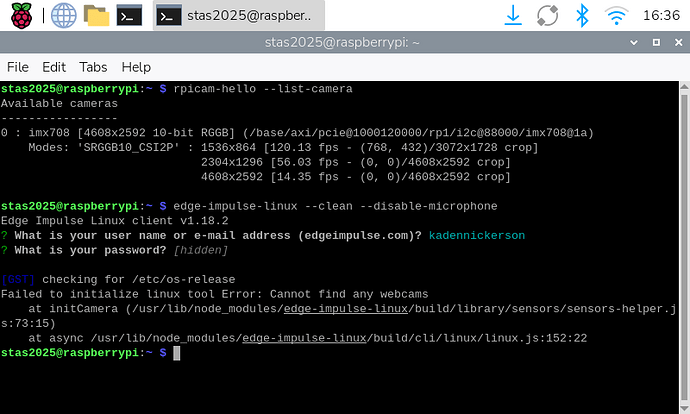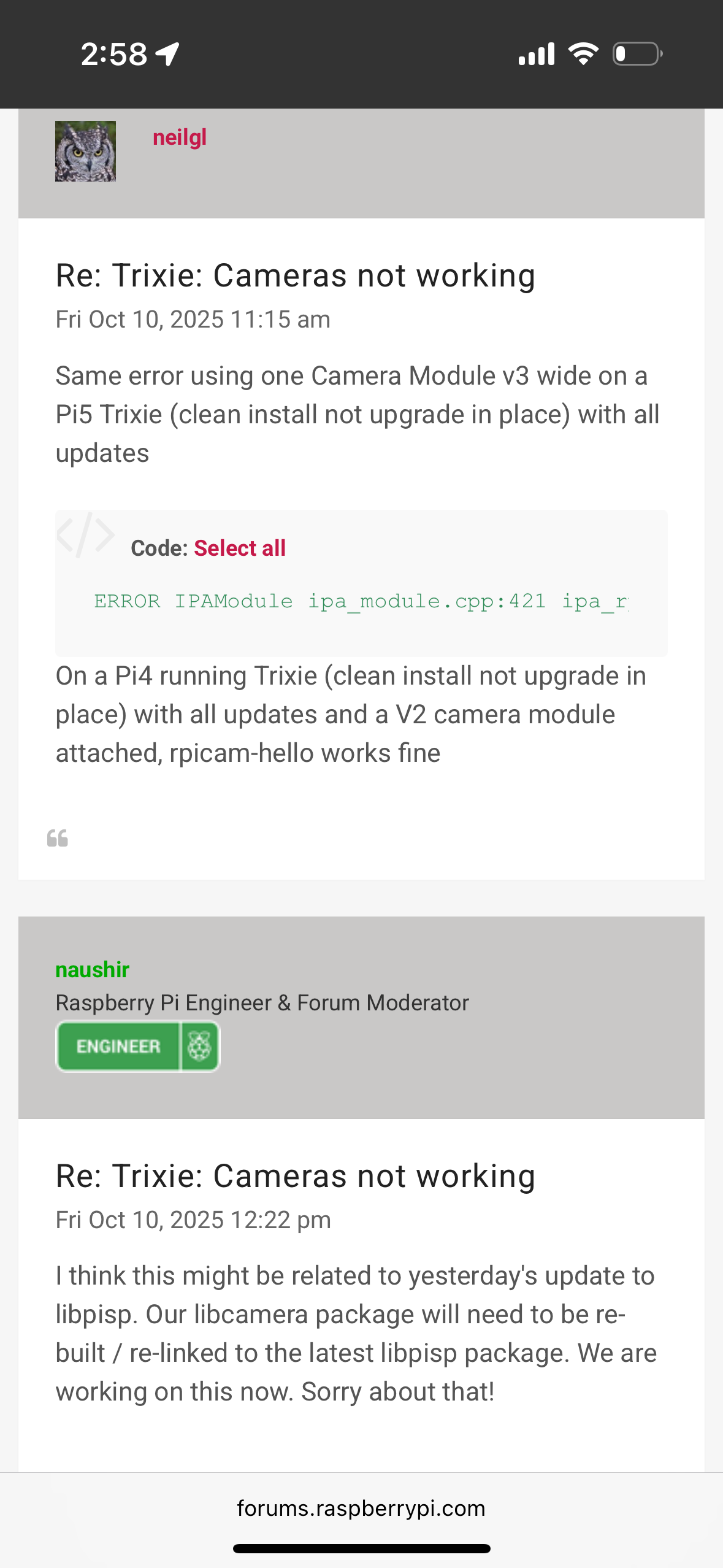Question/Issue:
I am trying to connect an IMX219 camera to a Raspberry Pi 5 to deploy a computer-vision model from Edge Impulse (Project ID 794931 – MLPM).
The camera works perfectly with the Raspberry Pi camera stack (rpicam-hello -t 0 runs fine), but when I run:
edge-impulse-linux
it fails with the message:
“Cannot find any webcams, run this command with –disable-camera to skip selection.”
I’ve verified that the camera hardware, ribbon, and detection under libcamera are all functional, but Edge Impulse doesn’t recognize it—even though the official documentation lists Raspberry Pi 4 & 5 as supported.
Project ID:
794931
Context/Use case:
I previously had this same Edge Impulse project running successfully on a Raspberry Pi 4 with the same IMX219 camera.
However, after transporting the setup, the camera stopped appearing, and raspi-config no longer displayed a “Camera” option.
I then switched to a Raspberry Pi 5 with a fresh install of Raspberry Pi OS Bookworm (64-bit), but encountered an issue—the camera works fine with rpicam-hello, yet Edge Impulse cannot detect it.
I thought the problem might be related to Edge Impulse not yet supporting the new libcamera-based stack that replaced the older V4L2 interface on Pi 4/5 systems.
Steps Taken:
- Fresh install Raspberry Pi OS Bookworm (64-bit, non-Legacy).
- Install Node & Edge Impulse CLI:
- Verify camera: rpicam-hello -t 0 works.
- Run Edge Impulse: edge-impulse-linux --api-key camera not found.
Expected Outcome:
Edge Impulse Linux client should detect and use the IMX219 camera on Raspberry Pi 5, as advertised in the documentation.
Actual Outcome:
Camera works with rpicam-hello and other apps but is not recognized by Edge Impulse CLI.
Reproducibility:
- [ ] Always
- [ ] Sometimes
- [ ] Rarely
Environment:
-
Platform: * Raspberry Pi 5
-
Build Environment Details: [e.g., Arduino IDE 1.8.19 ESP32 Core for Arduino 2.0.4]
-
OS Version: * Raspberry Pi OS Bookworm (64bit)
-
Edge Impulse Version (Firmware): latest
-
Edge Impulse CLI Version: latest
-
Project Version: [e.g., 1.0.0]
-
Custom Blocks / Impulse Configuration:
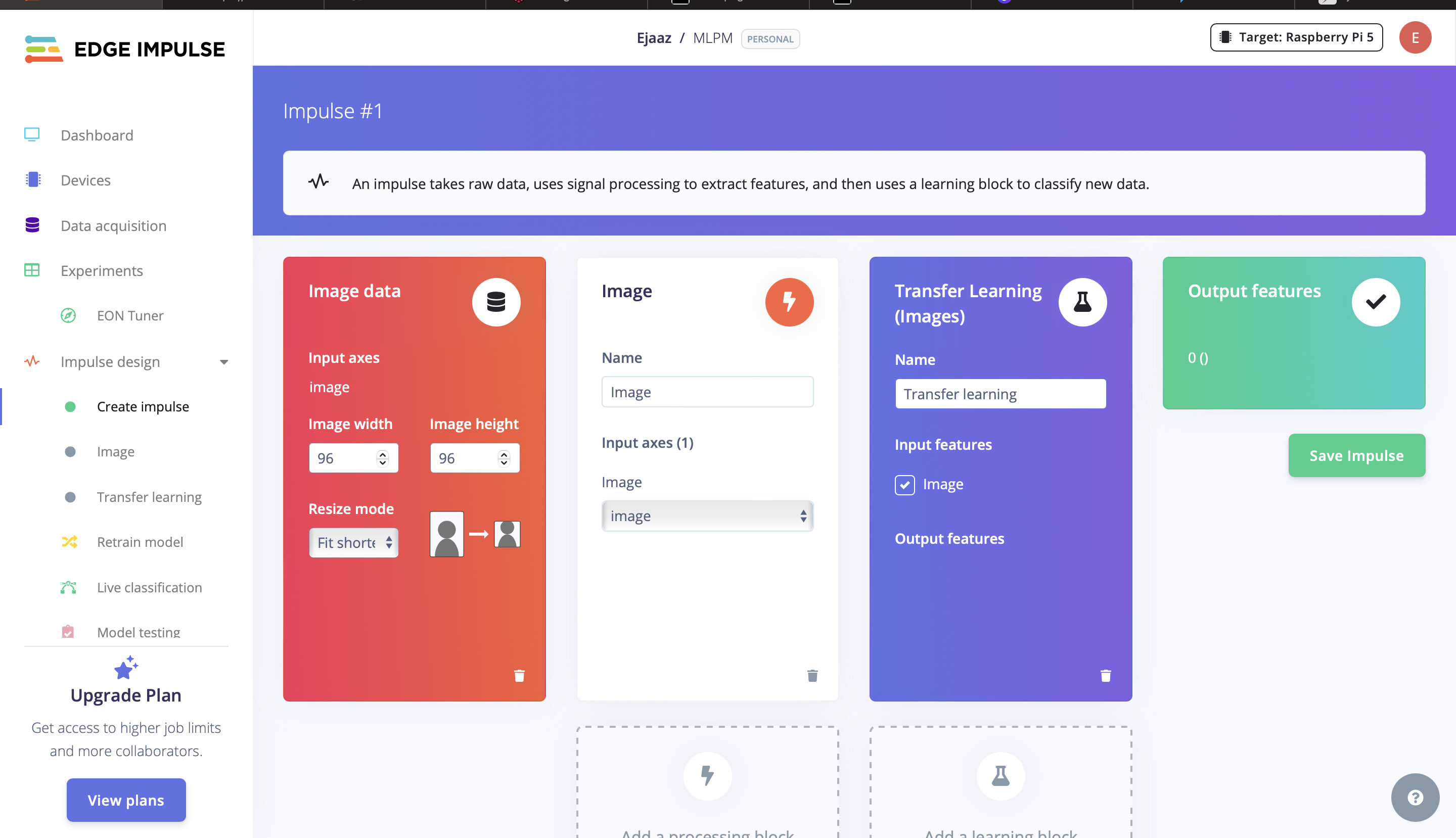
Logs/Attachments:
Additional Information:
I have tried using the --gstreamer-camera-pipeline option, but I’d prefer to stay within officially supported configurations—no manual bridges like v4l2loopback unless Edge Impulse recommends it.
Please confirm whether the current Linux SDK fully supports the Raspberry Pi 5 libcamera stack, or if there’s an upcoming update required for camera detection.
